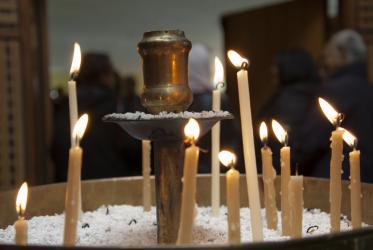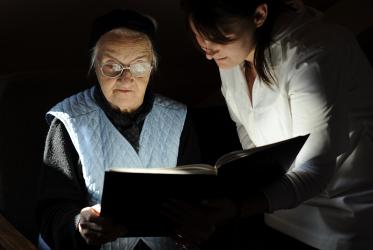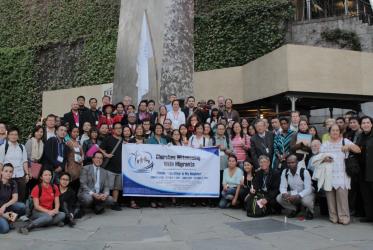Displaying 1 - 20 of 24
#WCC70: A prayer about health and healing
20 July 2018
WCC offers condolences upon death of Anglican Archbishop Turei
13 January 2017
New videos help congregations hasten HIV response
20 October 2016
Voices from HIV workshop reflect deep impact
07 April 2016
"I hit the ground running": Katalina Tahaafe-Williams
16 February 2016
United Bible Societies: A world fellowship serving the churches
16 December 2015
Consultation considers right to food in context of climate change
15 December 2015
Land rights focus of panel discussion
17 November 2015
A humble man firmly rooted in faith
20 August 2015
New UN document opens door for churches to do more for indigenous rights
23 September 2014
Church in Philippines launches book on HIV and AIDS
19 February 2014
Churches advocate upholding human dignity of migrants
14 October 2013













